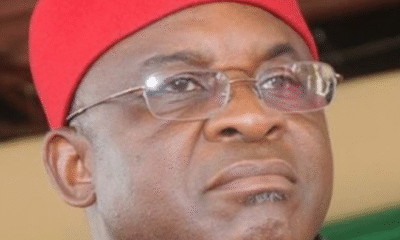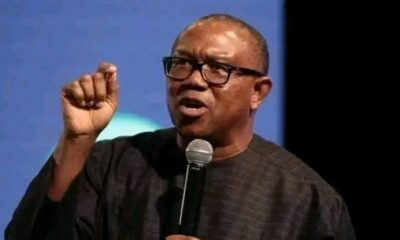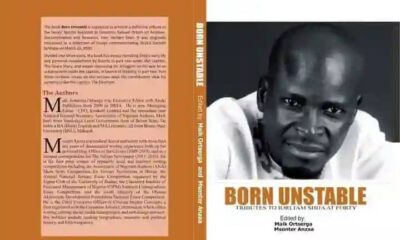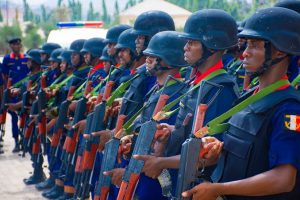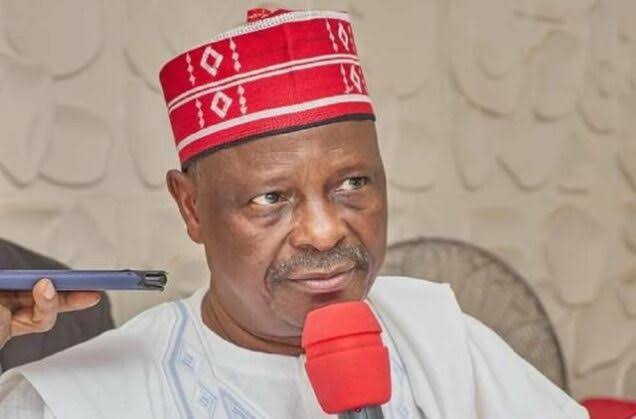Metro News
Governor Alia launches 5-year action plan for IDPs in Benue
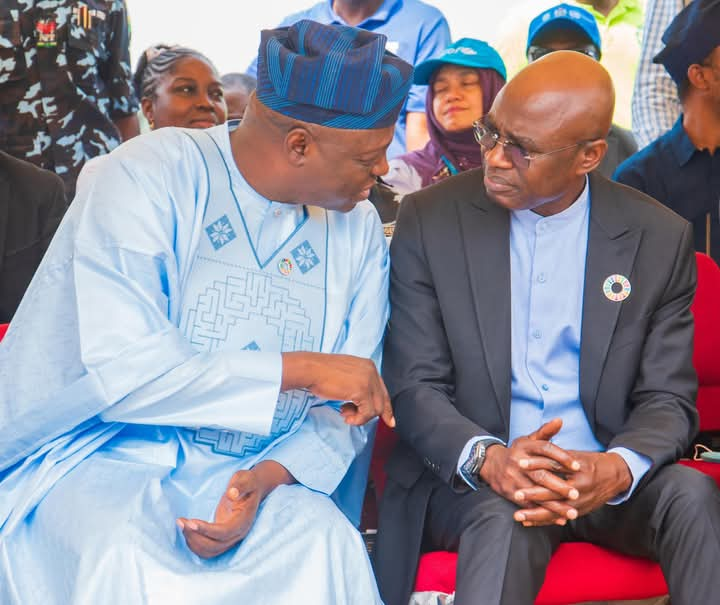
Benue State Governor, Rev. Fr. Hyacinth Alia, has launched a programme to support internally displaced persons (IDPs) in the state.
The drive which is part of the Action Plan on Durable Solutions, is aimed to foster IDPs safely return to their ancestral homes.
While addressing the Minister of Humanitarian Affairs, Prof. Nentawe Yilwatda and his entourage; the Nigeria’s UN Resident Coordinator, humanitarian partners, and members of the diplomatic community during a visit to the dry season farm project site located at Gboko Road, and later at the Old Banquet Hall, Government House, Makurdi, the Governor emphasized that the initiative is meant to creating sustainable results for over 500,000 displaced persons (IDPs) residing in the state.
According to him, the Programme includes the formation of 210 Farmers Cooperatives across all camps in the state, benefiting over 4,200 IDPs. The beneficiaries are expected to receive extensive training in rice, maize, cassava, and vegetable farming, covering all stages of production
According to the governor, the program is expected to provide IDPs with access to land, subsidized inputs, and improved seedlings, as well as increased yields and revenue. The beneficiaries will also have guaranteed market access with government-controlled prices and integration into the larger value chain.
He reaffirmed his administration’s commitment to restoring stability and dignity to affected communities.
He emphasized the need for collaborative efforts between the government and the international community.
He said, “Your esteemed presence here today reaffirms the invaluable partnership in addressing the pressing needs of our displaced persons.”
He highlighted areas of strain on local resources and social cohesion as host communities struggle to accommodate the displaced population across 23 Local Government Areas (LGAs).
The Governor outlined a three-pronged approach to tackle the crisis: RETURN, INTEGRATION, and RESETTLEMENT.
He affirmed the framework aims to strengthen resilience at both individual and community levels.
“Before I assumed office, my dream was to see a day when every IDP has returned to their ancestral home,” he declared.
He refers to the framing of the Operation Plan as a roadmap for long-term development rooted in the empowerment of displaced individuals.
Key initiatives under the Action Plan include community dialogues to foster peace, land donations from traditional rulers for farming and relocation, and establishing cooperatives to support IDPs as they transition back to their homes.
The Governor also shared success stories, such as the recent completion of the Transit Camp in Guma LGA, which houses over 4,000 dignified emergency shelters, improving living conditions for IDPs.
In a bold commitment to the operationalization of the Action Plan, the Benue State Government has allocated 10% of the state budget for its implementation.
He called for support from various stakeholders, including the Federal Government, UN agencies, and local organizations, to ensure the plan’s success. “I urge all partners to coordinate their efforts through the Benue Durable Solutions Taskforce,” he said, reinforcing the need for a unified approach to the crisis.
As the event concluded, the Governor endorsed the State Action Plan for five years, with plans for regular evaluations to adapt to the growing needs of the population. “This program will be crucial in addressing the long-term needs of our people.”
-
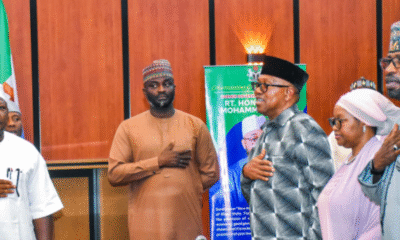
 Politics1 day ago
Politics1 day agoPeter Obi visits Niger, donates ₦20m to flood victims
-

 Metro News2 days ago
Metro News2 days agoEno’s daughter manipulated by false prophets – AKSG
-

 Politics1 day ago
Politics1 day agoSack some ministers, security chiefs – Orji Kalu tells Tinubu
-

 National News2 days ago
National News2 days agoBreaking: NYSC begins payment of arrears
-

 National News22 hours ago
National News22 hours ago“Secure custodial facilities or face consequences” — CGC Nwakuche warns corrections commanders
-

 Crime and Law1 day ago
Crime and Law1 day agoBreaking: Army Chief relocates to Benue over incessant killings
-

 National News1 day ago
National News1 day agoForum calls on Tinubu’s loyalist to defect to PDP
-

 Education1 day ago
Education1 day agoDrama as parent sends thugs after vice principal for seizing son’s phone during WAEC






